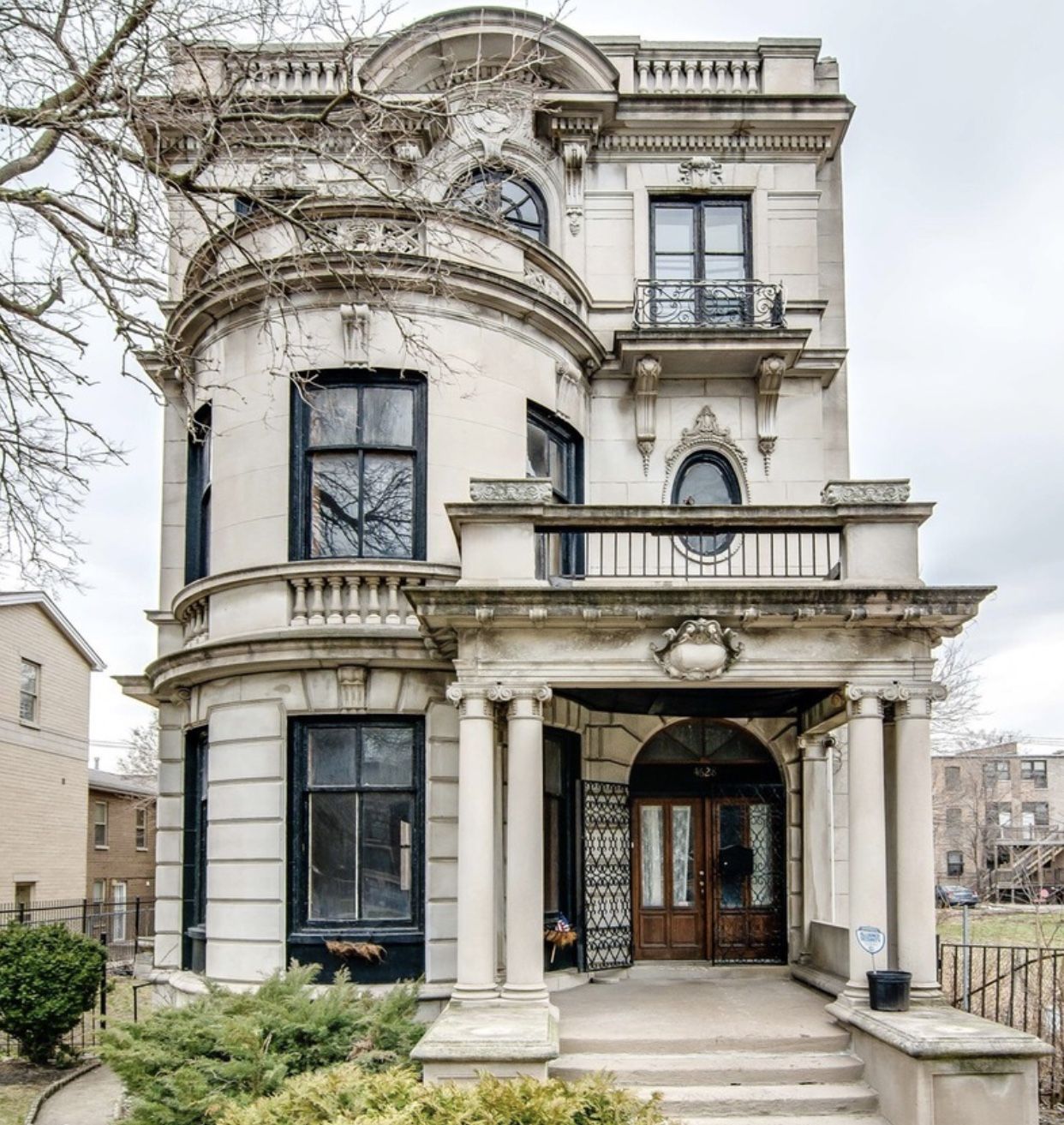#14247. Majestic Beaux-Arts Mansion Facade: A Blend of Classical Forms and Exquisite Detailing

Before us stands a magnificent example of Beaux-Arts architecture, an elegant urban building from the late 19th to early 20th century. The facade of this mansion demonstrates the classical elements of the style that was particularly popular in the US during the Gilded Age. The symmetrical yet dynamic exterior is created through a combination of curved and rectangular volumes.
The rich detailing of the light-colored stone facade deserves special attention. All the characteristic elements of Beaux-Arts are present: decorative cartouches, exquisite bas-reliefs, classical columns with capitals, balustrades, and cornices with modillions. The rounded bay window on the left side of the building creates an elegant architectural accent, while arched and rectangular windows of various shapes add variety to the facade.
The entrance group is designed as a classical portico with columns and a decorative pediment, giving the building a majestic appearance. French balconies with wrought iron railings on the upper floors demonstrate the attention to detail characteristic of this style. Such facade design exemplifies how architectural heritage can serve as a source of inspiration for contemporary projects.
When creating your own home in a neoclassical style, it's worth paying attention to the proportionality of elements, symmetry of composition, and quality finishing materials. Even simplified versions of classical elements — cornices, pilasters, window trims — can add elegance and nobility to the facade, characteristic of historical architecture.